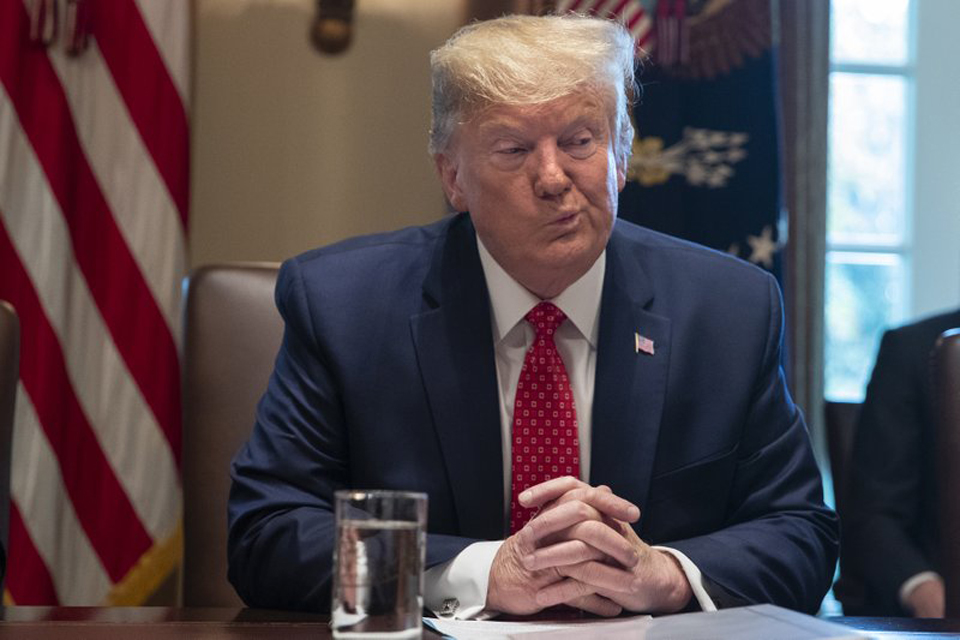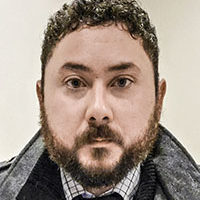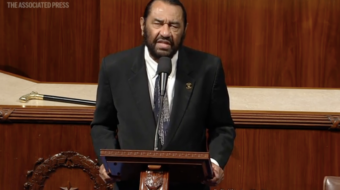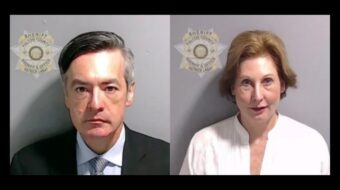
Rep. Kevin Buck, R-Colo.: “Could you charge him (Trump) after he left office?”
Robert Mueller: “Yes.”
Buck: “For obstruction of justice?
Mueller: “Yes.”
Last week saw quite a whirlwind of testimony in the Trump impeachment hearings before the House Intelligence Committee. Former National Security Council staffer Fiona Hill and foreign service officer David Holmes closed out the final day of public hearings Thursday, confirming once again that there was an effort, “parallel to official channels,” to force Ukraine to investigate former Vice President Joe Biden, and that Donald Trump asked Ambassador to the EU Gordon Sondland: “So, he’s (Ukrainian President Volodymyr Zelensky) gonna do the investigation?”
It has now been established, beyond doubt and despite the Republicans’ frantic PR spin, that President Donald Trump asked a foreign country to investigate a political rival as his re-election campaign gears up.
Over the course of testimony from nine witnesses, it was shown that this was a calculated, organized, and planned affair carried out by the Trump White House, which has become his rather corrupt personal political enterprise.
With Congress now investigating every aspect of Trump’s political, business, and personal life, all to secure impeachment, I can’t help but think of this affair in terms of a criminal syndicate organization. The Boss is pulling all the strings, careful to not implicate himself in any wrongdoing. And yes, we’ve seen this before.
On the silver screen, it was brought to life through The Godfather and Donnie Brasco and on television with The Sopranos. In the newspapers, it was known as “Cosa Nostra” (the Mafia), and it has filled us with much intrigue and fear—similar to Trump’s presidency.
And while on this vein of thought, we would be remiss not to mention a certain set of federal laws aimed at curbing organized crime which could prove quite useful in ousting a corrupt president: the Racketeer Influenced and Corrupt Organizations Act (RICO).
The focus of this president’s impeachment shouldn’t just be one thing, but rather a sharp focus of all the little things making up the single whole. Were this a civil matter, the case would’ve been closed by now, and Trump would be sporting an orange jumpsuit to match his orange tan.
RICO, signed into law in 1970 by President Richard Nixon, provides criminal penalties for persons engaging in “a pattern of racketeering activity” and who have a specified relationship to an “enterprise” affecting interstate or foreign commerce.
Under RICO, “racketeering activity” includes: state offenses such as murder, robbery, extortion, and several other serious offenses, punishable by imprisonment for more than one year, and more than 100 serious federal offenses including extortion, interstate theft, narcotics violations, mail fraud, securities fraud, currency reporting violations, certain immigration offenses, and terrorism-related offenses.
And it only takes a person who has committed “at least two acts of racketeering activity” within a ten-year period to be charged.
RICO also closed a perceived legal loophole allowing a person who instructed someone else to, for example, withhold aid from Ukraine in exchange for election interference, to be exempt from trial because they didn’t “actually” commit the crime. Sondland’s “I was following orders” testimony, along with his naming others directly involved with the plan filled in the gap with what was missing to implicate Trump, whom he so eloquently and appropriately referred to as “the boss” in emails to other underlings.

And while the RICO law was created to address the issues of organized crime (such as the Five Families), the Trump Enterprise, along with his counsel, Rudy Giuliani, family members, and soldiers (aides, cabinet members, etc.) fits the pattern of an enterprise which has taken on a criminal life of its own.
Of course, Trump’s crime is not directly economic here, but it is about national security. And yes, RICO has been used to tackle terrorism and corrupt global industries.
So, now that we have established Trump has his enterprise, we move on to showing his “pattern of activity.”
This wouldn’t be the first time RICO crept into Trump’s life. Businessman Trump faced a civil RICO class action lawsuit (Art Cohen v Donald J. Trump) for misrepresenting Trump University “to make tens of millions of dollars” but delivering “neither Donald Trump nor a university.” The case was scheduled for arguments Nov. 28, 2016, but was settled out of court ten days before the first hearing, and shortly after the 2016 election handed Trump the presidency.
If he did it once before, what makes us think he wouldn’t do it again?
As we head towards the next steps in the impeachment process, and an almost certain eventual Senate trial, the best way to think about the president is as an inept crime boss. And while RICO can’t apply to the impeachment process, it does layout a strong framework to think about the president, his administration, and his crimes: obstructing Congress, violating campaign finance law, intimidating witnesses, etc., etc., etc.










